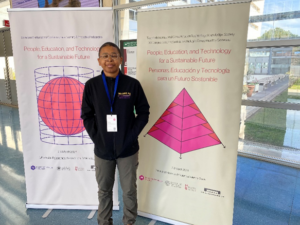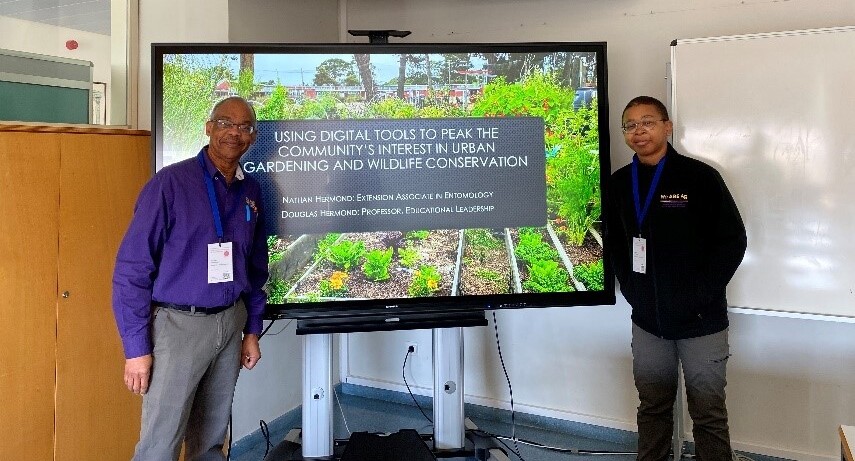
Nathan Hermond
Nathan Hermond, Agriculture and Natural Resources Unit (AgNR) Extension Associate, attended the 17th International Conference on e-Learning and Innovative Pedagogies Conference in Valencia, Spain. According to the e-learning & Innovative Pedagogies Research Network’s website, “The Conference brings together participants with a common concern for new technologies in learning and an interest to explore possibilities for innovative pedagogies. The theme of the Conference is: “People, Education, and Technology for a Sustainable Future.” It will explore the chance to build a community where people can make linkages across disciplinary geographic and cultural boundaries.” On March 7th, Nathan, alongside his colleague and Father, Douglas Hermond, Ph.D., professor of Educational Leadership at Prairie View A&M University (PVAMU), presented “Using Digital Tools to Peak the Community’s Interest in Urban Gardening and Wildlife Conservation”. Their session covered three key Digital Tools used by the AgNR Unit to enhance learning experiences and outreach to the community. The resources discussed were:
- Visual Guides/Infographics- Produced in partnership with Kara Maddox of Michigan State University (MSU), these aids were designed to assist gardeners with understanding why it is important to protect and conserve beneficial wildlife and how to do this using integrated pest management (IPM) practices.
- Drone use for land planning and management for limited resource producers, as implemented by the AgNR Unit through Elliott Washington, Ph.D., forestry specialist.
- Youth engagement through the “Pollinator Superheroes” Video Project (Partnership with (MSU). This video explains the importance of pollinators and how everyone has a role to play with it comes to protecting pollinators. In addition to Nathan lending his voice to the project, Carolyn Williams, Ph.D., executive associate director of PVAMU Extension, also voiced a character for this project.
Nathan and Dr. Hermond shared how agricultural sustainability depends on the implementation of new technology. Additionally, they emphasized the need for education and implementation of other technologies, such as aquaponics and hydroponics. The ultimate goal of this work is to assist minorities and other historically underserved populations who live in food deserts and have limited space and resources. In helping to meet these needs, we hope to establish food security for all people, locally and globally.
Nathan Hermond
AgNR Extension Associate
nchermond@pvamu.edu

